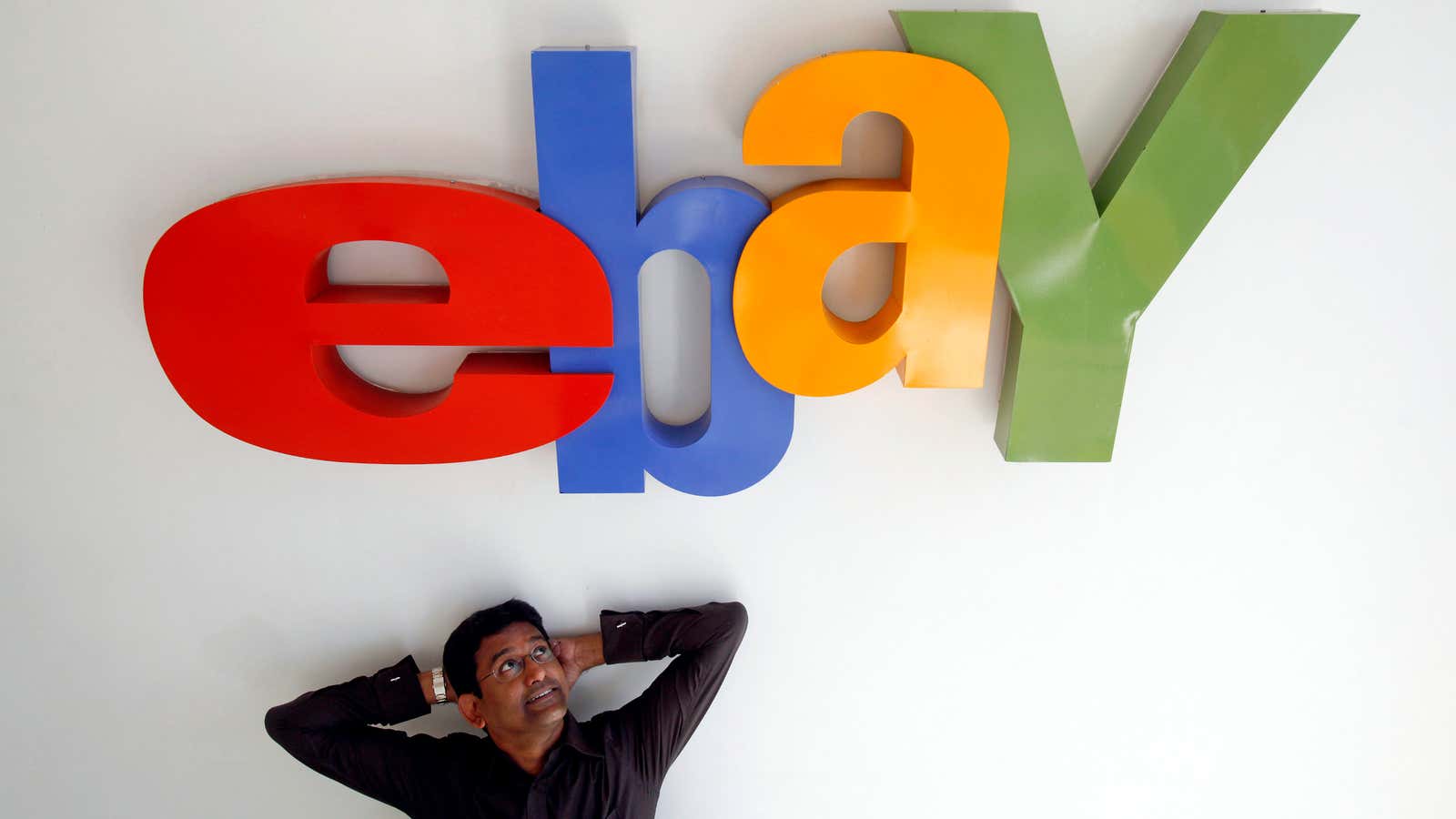EBay is making an interesting decision for an American multinational company: It’s thinking about paying its taxes.
The online marketplace and payments pioneer told investors yesterday that it expected a $3-billion charge on its books for taxes that will come due when it brings some $9 billion in untaxed overseas revenues back to the United States. Some analysts were surprised: Companies from Apple to Verizon have found ways to repatriate their cash without paying taxes on it, typically by borrowing against it; and even eBay has done that before. While interest rates have been rising, they’re still lower than the statutory rate on US corporate income.
The company says it is bringing back the revenue to invest in its US operations and potentially in an acquisition. While CEO John Donahue was cagey on the conference call, he laid out two potential criteria while emphasizing an interest in mobile: “Ways to extend our business platforms”—like the company’s acquisition of StubHub in 2007—and “more capability acquisitions, where we’re buying a technology or buying a management team”—like the purchase of the mobile-payments start-up Zong in 2011.
Obviously, that leaves a lot of options on the table, but we’d just note with a wink that major mobile payments competitor Square is reportedly low on cash, looking for acquirers and worth a few billion dollars.
But why would eBay choose to pay taxes when it could avoid them? Here are a couple of reasons:
The company may want to move more quickly in an acquisition than it could if it needed a bank to underwrite and finalize a multi-billion-dollar bond deal. Or, the hassle of hiring all those lawyers and bankers may not seem worth the distraction from eBay’s central business (companies issuing bonds to avoid paying tax have typically done so for much larger amounts and keep more cash overseas). And don’t forget, eBay could easily reverse this charge next quarter if it decides not to bring the cash back.
Maybe the decision is an additional finger in the eye of Carl Icahn, the activist investor who feuded with eBay’s management over the company’s structure. Rather than spin off its PayPal online payments unit or increase its share buy-back with foreign cash, as Apple did, eBay is forking the cash over to Uncle Sam.
Or, maybe the company’s executives realize that the corporate income tax is unlikely to be cut by Congress anytime soon, so it’s better to put the money to work and take the tax hit now, rather than watch it accumulate overseas in the years and decades ahead, with ever-larger tax payments looming.
